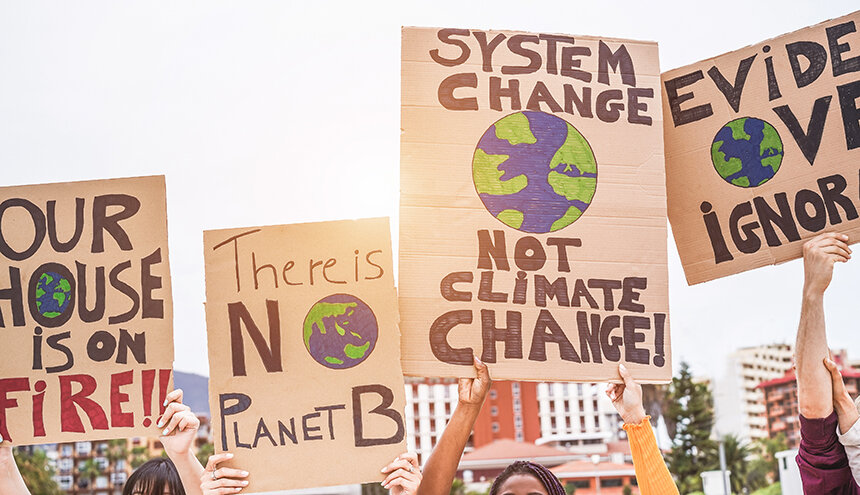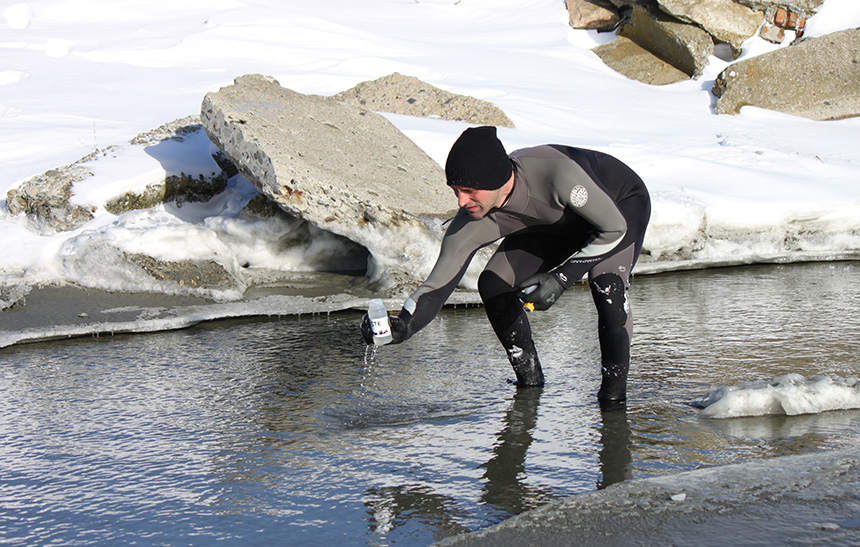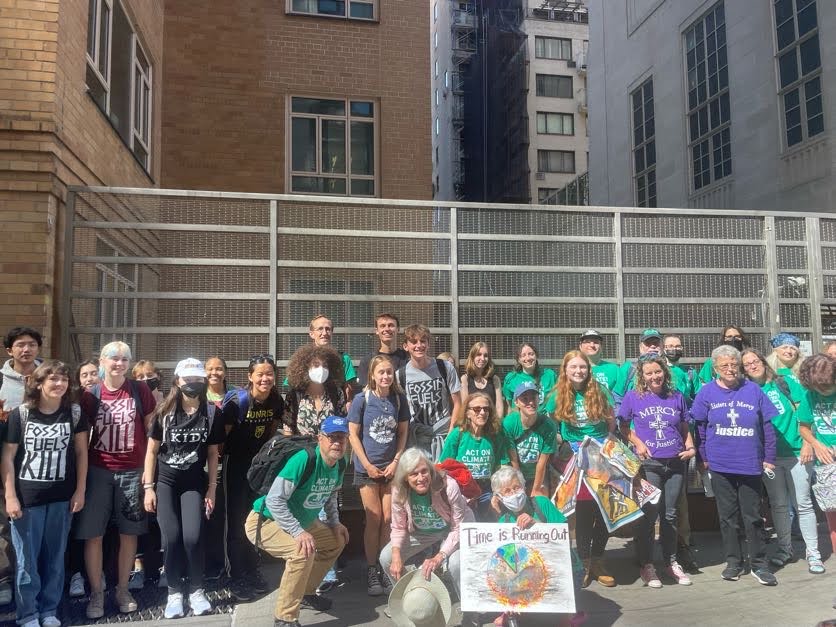Environment Council’s Legislative Agenda for 2024 Includes Funding for Environmental Justice, RIPTA
February 5, 2024
PROVIDENCE — Local environmental groups and advocates kicked off their legislative agenda for the year at the Statehouse with pastries, Dunkin’ Donuts coffee, and a list of climate policies.
The Environment Council of Rhode Island (ECRI), a coalition of some 60 environmental organizations from around the state, held its annual coffee hour to meet with lawmakers and lay out its agenda for the coming legislative session.
The mood was almost celebratory — environmental groups have been successful in lobbying the General Assembly in recent years to pass the emission reduction mandates of the Act on Climate; an expansion in shoreline access; plastic bag bans; and a 100% Renewable Energy Standard — but advocates indicated the real work has yet to begin.
“The Act on Climate is not a self-executing statute,” said Amanda Barker, co-vice president of policy for ECRI and policy associate for the Green Energy Consumers Alliance. “The state must follow up with programs to meet those targets.”
Barker said the policies outlined at the Feb. 1 event were still preliminary — ECRI’s membership is expected to vote on the final list sometime in April for an official rollout event planned for April 30 — but would help the state achieve its emissions reduction goals.
ECRI’s top priorities fall under four categories:
Decarbonizing buildings. For all the work that’s been done, Rhode Island is still without a policy strategy to reduce its building emissions, which account for about a third of all greenhouse gases emitted statewide. The vast majority of the residential and commercial heating sectors use natural gas or fuel oil to heat their buildings, and the state’s heat pump rollout has been slow. Barker told ecoRI News last month that the state needed a clean heat standard (similar to how a renewable energy standard works) and a large building energy benchmarking program to locate the biggest emitters and give them objectives to bring their emissions down.
Environmental justice. While the Rhode Island Department of Environmental Management rolled out its first environmental justice policy last year, the state still lacks safeguards to address the cumulative impacts from repeatedly siting polluting industries in marginalized communities, a policy trend ECRI hopes to reverse this year. The group is also supporting a Percentage of Income Payment Plan (PIPP) to limit the amount of money low-income people must pay on their utility bills.
Funding RIPTA. For all the guff surrounding the closure of the westbound side of the Washington Bridge, Rhode Island still refuses to take its only alternative to cars seriously. The Rhode Island Public Transit Authority faces a fiscal deficit of around $18 million, and while Gov. Dan McKee’s proposed fiscal 2025 budget allocates $10 million to help close that gap, the state’s only transit service still faces steep cuts in service. ECRI wants to fully fund RIPTA, expand service, and start implementing the Transit Master Plan.
Funding environment and climate action. ECRI is going to encourage the state to leverage all available federal funds for environmental projects and include money in the state budget to fund more environmental staff and programs. An analysis performed by ecoRI News in December showed Rhode Island has been allocated $700 million in federal funds for environmental projects since the Inflation Reduction Act and Bipartisan Infrastructure Law were passed.
In prepared remarks, Speaker of the House Joe Shekarchi, D-Warwick, said that while the state had some successful years for environmental policy recently, the damage from two intense storm events in the previous 30 days were a sign the General Assembly shouldn’t stop passing environmental policy. Shekarchi also pledged to make this year’s proposed green bond “as green as we can make it.”
It’s a big turnaround for ECRI, which in 2020 declared the Legislature lacked leadership on environmental issues. Shekarchi notably received top marks from ECRI in its last environmental report card, released in 2022.
“I never got an A-plus in anything,” quipped Shekarchi. “And I’m proud of that.”
Categories
Join the Discussion
View CommentsRecent Comments
Leave a Reply
Related Stories
Your support keeps our reporters on the environmental beat.
Reader support is at the core of our nonprofit news model. Together, we can keep the environment in the headlines.
We use cookies to improve your experience and deliver personalized content. View Cookie Settings




No mention by the Environmental Council of Rhode Island that the Governor failed to include in his budget, for the first time since its inception, an Open Spaces bond issue referendum on November’s ballot?
Certainly, the ECRI will include this when it finalizes its agenda.
Right?
No mention by the Environmental Council of Rhode Island of Forests either despite Rhode Island being the only state in New England with no Forests protected from logging on state land. Rhode Island also currently has no state laws that protect Forests.
The Old Growth Forest Protection Act 2024 H7293 would create the first state laws to protect Forests and Biodiversity in Rhode Island’s history.
https://webserver.rilegislature.gov/BillText/BillText24/HouseText24/H7293.pdf
Nathan Cornell
President of the Old Growth Tree Society
No mention of the fact that the Governor’s budget excluded the Open Space Bond referendum, which has always been widely approved by the voters, the vital seed money that threatened wildlife habitat acquisition projects depend upon to attract further funding from private foundations—getting that back into the budget is not on the ECRI’s agenda this year?
Certainly it will be when the agenda is finalized.
Right?
Open space bond will be on the agenda. ECRI is still working on both its priorities and its larger agenda. Open space reflects the priorities of many members. We are still evaluating the old growth forest legislation and advocacy. ECRI will as a body vote on its priorities. Some decisions as to what to include and at what rank for the coalition are made in March others in April, and the list remains a moving target throughout the session as what seems possible changes.
As is, the green bond is quite disappointing. it is more commerce related than environmental. I am hoping ECRI will be able to effect changes in it and will advocate for open space money to be included. I would also hope that ECRI support would be given to any legislation that would provide protections to forests, farmland, etc. so wildlife might also be protected.